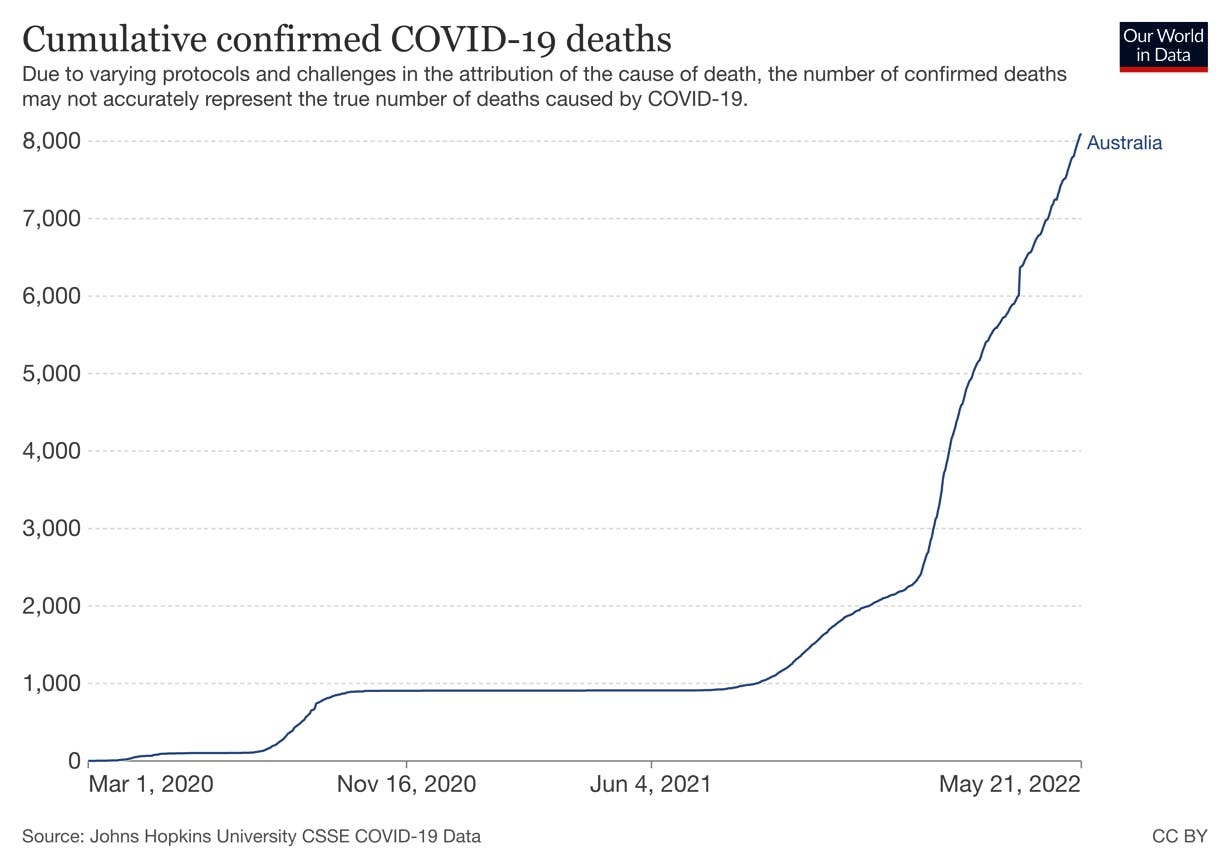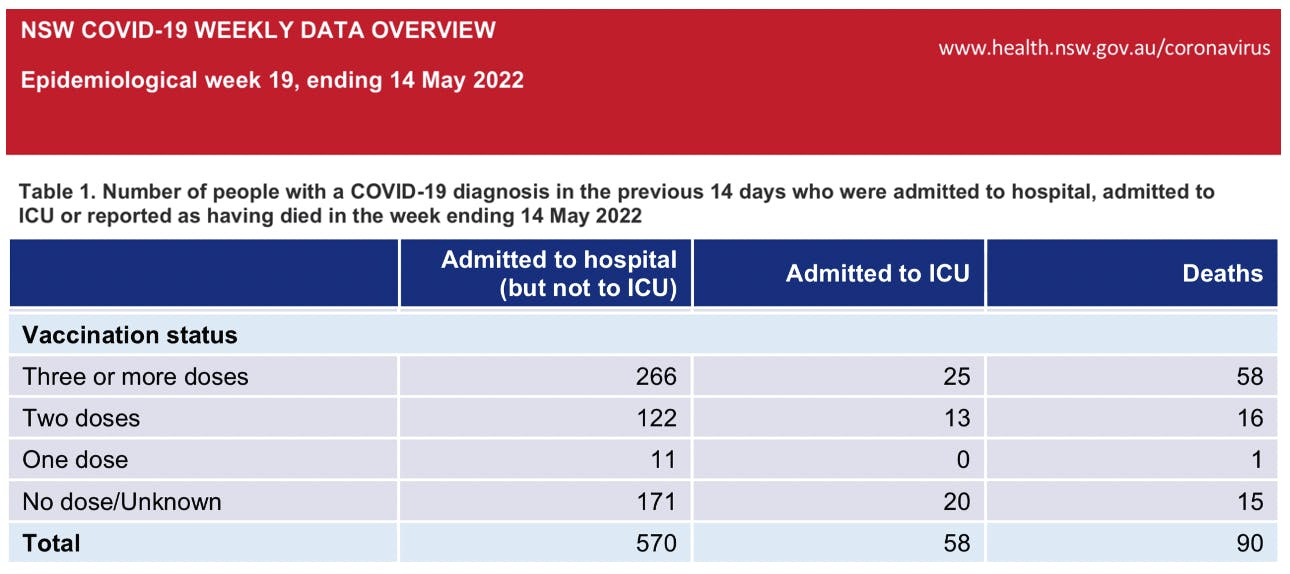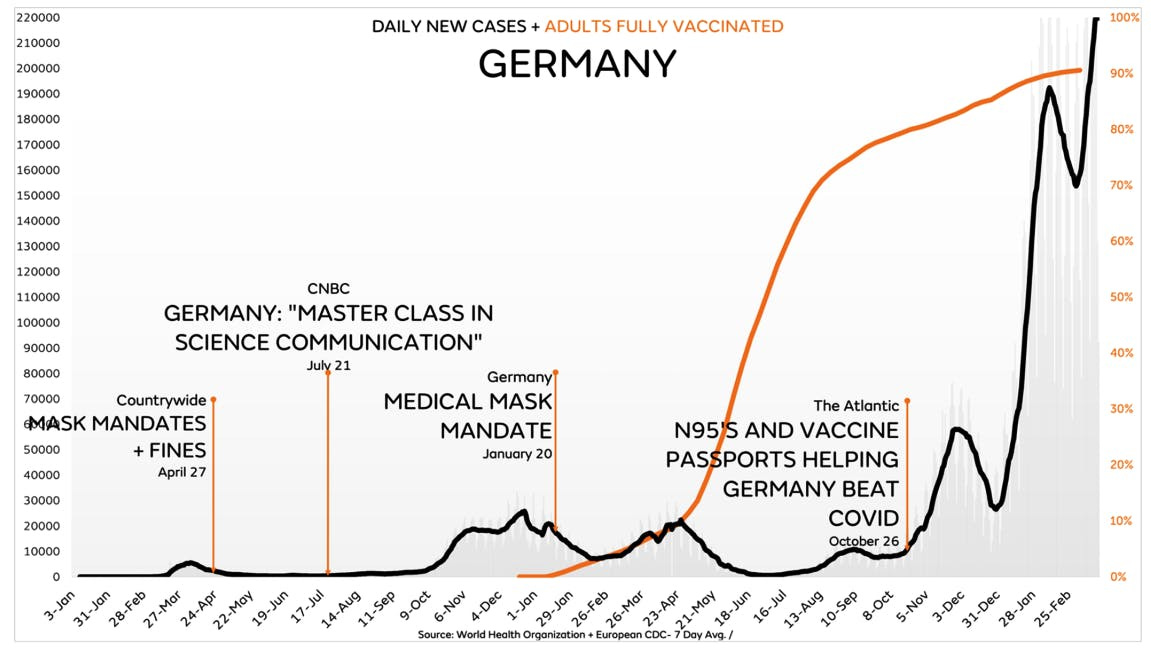Is this what 'success' looks like? What the Australian Government Doesn't want the Public to Know
By Professor Ramesh Thakur: Spectator Australia.
As someone who has been looking at Covid-related data since the outbreak of the pandemic and a resident of the ACT until the end of last year, my curiosity got the better of me and I checked the Covid situation on the Canberra Times online on Sunday.
The opening sentence was memorable:
"Covid hospitalisation in the ACT has risen above 90 for first time and hit a record high for the fourth day in a row."
There were 92 Covid patients in hospital on Saturday night, including three in intensive care and two on ventilators. In the preceding 24 hours, 758 new Covid cases had been reported in the territory. Meanwhile, the number of influenza cases was also higher than pre-pandemic levels.
Strikingly, however, the paper failed to report on the breakdown between vaccinated and unvaccinated Covid cases and hospitalisations.
My curiosity was piqued by the cynic in me. Could it be that Australia’s Covid story has morphed into a pandemic of the vaccinated?
So I checked out the Commonwealth Department of Health’s coronavirus website, but it too, while providing all manner of details on Covid statistics by age, sex, states etc, was conspicuously silent on the relationship between Covid cases, hospitalisations and deaths on the one hand, and vaccination status (unvaccinated, single dose, double dose, boosters) on the other.
My next stop on the journey was the trusty Our World in Data. At the end of 2021, 77 per cent of all Australians and 75 per cent of all Kiwis had been double vaccinated (Figure 1). Vaccination coverage of adults therefore would be above 90 per cent in both countries by January 1, this year.
From the start of the coronavirus pandemic in early March 1990 until the end of 2021, a grand total of 2,253 Australians and 51 Kiwis had died with Covid (Figures 2 and 3). As at 20 May 2022, the total Covid-related death count had climbed steeply to 8,076 in Australia and 997 in New Zealand.
In other words, in less than five months so far this year, despite world-leading vaccination rates, their respective Covid mortality tolls were 2.6 times higher for Australia and 18.5 times higher for NZ than in the 22 months until the end of last year.
If this is vaccine success, what would failure look like?
Figure 2
Figure 3
With this to hand, I tracked down the data for my new state of residence.
The NSW Respiratory Surveillance Report for the week ending 14 May offered the answers I was looking for. In this ‘epidemiological week 19’, there were 570 Covid cases admitted to hospital, 58 in ICU and 90 deaths (Figure 4). Of these, just 30, 34 and 17 per cent, respectively, were unvaccinated (or vaccination status unknown).
Conversely, fully 82 per cent of all Covid-related deaths in the state in this week were at least double vaccinated, including 64 per cent who had received boosters.
Figure 4
And still the conspiracy of silence continues among all state and federal governments about this disappointing failure of vaccine efficacy and lack of justification for vaccine mandates and passports.
There never was any ethical justification for vaccine coercion to begin with.
And clearly the regulators, health authorities and governments are stubbornly refusing to entertain, let alone scrutinise, the current data coming in for the pandemic, either by accelerated loss of efficacy or by weakening natural immunity with successive doses.
This is suggested (no stronger) also by data from elsewhere, for example Germany (Figure 5).
Figure 5
Source: Ian Miller, 20 May 2022
Furthermore, 86 of the 90 Covid deaths in NSW for the week ending 14 May were aged 60 and above and the remaining four were 40-59 years old. So forget about coercion.
Instead, this raises an additional question.
Given the massive budget blowouts, why are the authorities even recommending universal vaccination instead of targeting the high-risk group of elderly and people with underlying conditions, just like with flu every year?
Let people make their own informed decisions – now there’s a revolutionary thought.
RELATED STORIES
https://asenseofplacemagazine.com/ramesh-thakur-and-the-spectator/










